Marketing Your Indie Career for Job Searches
I'm so sorry to tell you that yes, you do have to market yourself
Hi hello! Wil Williams back with a final installment of our lovely indie series. As a ride or die indie creator, I’m sad to see it go — but very excited to get to our next series (hints at the end of this edition).
If you liked this series, we’re always thinking of different topics to cover! Always feel free to send us requests for upcoming series. Is there something you’re dying to know about in podcast marketing? A huge topic you’re not even sure how to start breaking open? Leave us a comment and it might just make it on our ed cal! 🗓️✒️✨
But for now, let’s talk about everyone’s FAVORITE type of marketing: marketing themselves and their own work and their own accomplishments!
lol lol lol jk jk jk. The number of people I know who enjoy analyzing and talking up their work is approximately “absolutely not, I would rather die.” And I feel you. Big same. But unfortunately, job searches are, more or less, marketing yourself.
And indie pals, you could be doing a way better job. I’m here to help.
💪🏻Your indie work is literally work
Putting on my labor rights hat for a moment (speaking of, hey hi, did you know that the Writer’s Guild of America East has an Audio Alliance that is free to join, open to everyone, and offers free resources and community connection?), unpaid labor is still labor. Unpaid work experience is still work experience.
Podcasting is an entertainment field. Indie creation has always been an important cornerstone of creative fields. The same is true for audio. Don’t let anyone tell you otherwise. Not getting paid, or having a boss, or working for a big company doesn’t mean that your work wasn’t work.
I see indie creators devaluing their work constantly. I’ll hear things like, “Well, technically I was the showrunner because it was my idea for a podcast, so I just sort of did it.” Okay — so you were a whole showrunner? That’s amazing. “Well, I was the head writer, because it was just a thing I wanted to write.” Okay — so you literally wrote a whole podcast? That’s a whole podcast more than most people in the world.
And just to soapbox a little here: I have had so many conversations with podcast creators who went from indie to having a job at a studio, podcast creators whose podcasts were optioned or adapted into TV, and people who started in Hollywood and are now working in audio. The word I hear used most often? “Motown.” (That’s not a good thing.)
Because audio creators are devalued, they internalize that devaluation, and in turn devalue their own work. What that means is that we keep getting low wages, bad contracts, our IP taken away from us, and we are left begging for scraps from the studios that literally need our work for their companies to exist.
We hold the power. We make the art. And we have to value that — starting with ourselves. It’s our duty not just to ourselves, but to our colleagues, and to our medium. People who aren’t creators, who don’t come from indie roots, won’t just spontaneously decide our work is worth something. We have to decide that first.
And that means when you write your resume, when you write your cover letter, when you see an amount of experience needed to apply for a position somewhere, you have to see and communicate your work as work. If you can’t stomach doing that for yourself, do it for — literally — the greater good.
🫡Be real about your job duties and responsibilities
Now that you know you have to approach your work as work, you can dissect what you’ve actually done and stick it on your resume, your cover letter, your website (please have a personal website — even something as simple as a Carrd will go a long way), and your socials.
Let’s take a quick dive into what figuring out your job duties and responsibilities might look like:
Were you in charge of the creative direction of your podcast? Did final decisions depend on you? Cool, you were a showrunner.
Were you in charge of scheduling audio recording and production timelines? Cool, you were a producer.
Were you in charge of making sure the audio all sounded decent? Cool, you were an audio engineer.
If more than one person worked on the podcast to any degree, did you make sure everyone knew what their roles were, their deadlines, etc.? Cool, you managed a team.
Did you set those deadlines and make sure episodes were out when they were supposed to be out? Cool, you managed a production calendar.
Did you set up promo swaps, feed drops, or other marketing tactics? Cool, you launched marketing campaigns.
I want to be clear here that I am not telling you to lie. In fact, straight up: don’t lie! What I’m saying instead is that this is literally how you can and should communicate the very real work you’ve done.
Not sure how to figure these roles out? Highly recommend checking out Podcast Taxonomy: “An international, multidisciplinary collaborative standard for recognizing roles and credits in podcast production.” You can literally go down the white page asking yourself, “Is this something I’ve done? Okay ✅✅✅”
👯Get a little help from your friends
So. I can talk the talk here. But can I walk the walk? Um . . . so, even though I logically know all these things, if I try to talk myself up, I will more likely puke to death apologizing the entire time and also will offer to pay you money for my labor, and then I’ll die again.
But talking up my friends? It’s like sipping on the finest ambrosia. People are always so shy and apologetic when they ask me to punch up their resumes or cover letters, like fools. I love nothing more than helping celebrate the accomplishments of the people I love, respect, and want to succeed — for their sake, because I love them, and for the sake of audio, because I love our medium.
After you’ve spent time treating your work as work, hand your resume and cover letter to a trusted friend who also knows the audio industry. Don’t have those yet? The WGAE Audio Alliance has a Discord server just sayin’. Tell your friend that you want to make sure you’re not missing any job duties given you’ve had to make the list yourself. Ask them to point out anything you’ve missed. I promise you have missed something.
And ask them to make sure you aren’t apologizing for being indie, for being unpaid, for being a “hobby” creator at any point. There’s literally no reason to apologize for any of that.
Make them be a hardass on you valuing yourself. Make them see your resume from a critical eye, from the eye of someone who might want to hire you, and ask them to point out any phrasings that might be too weak. Again, seriously, do not lie — instead, understand that you will almost always be your harshest critic. Would you let your enemy write your resume, or would you want it written by a compassionate friend who’s enthusiastic about your capabilities?
✨More magic
Recently, the first episode of Wolf 359 turned 10 whole years old. If you’re not familiar with Wolf 359, I can’t recommend it enough, truly — and if you are familiar, you know just how brilliant the team behind the show is. Gabriel Urbina, creator and writer on Wolf 359, has always been giving out some of the best resources for creating audio fiction, and now, you can take upcoming courses from him on some of the things he knows how to do better than almost anyone else in audio, fiction or otherwise: Writing Stories for sound and Directing Stories for Sound. Tickets are only $60 each, an absolute steal. And this isn’t sponcon, just to be clear. I just really think y’all should go to these. I’m going!
Writing Stories for Sound, single sessions hosted on September 5th and 10th
Directing Stories for Sound, single sessions hosted on September 8th (with guest hosts Emma Sherr-Ziarko and Beth Eyre) and 12th (with special guest Lauren Shippen)
🎙️From the Desk of Tink
From Holly at Team Tink! 💖🧚🏻✨: This September, Fine Dining: The Hilarious Search for the Most Mediocre Restaurant in America serves up Septemburger, a month-long burger battle where host Michael Ornelas and guest judges pit burgers from 8 well-known chain restaurants against each other in their attempt to find something actually great - a 'mid' masterpiece. It’s a nostalgia-fueled quest through America’s dining scene. Listeners can join the fun by submitting their own Septemburger bracket by September 10th for a chance to win $500!
Thank you for reading! Next week, Shreya returns to bid adieu to our indie series and talk about something creators can tend to get anxious about: endings.
—Wil 🦇




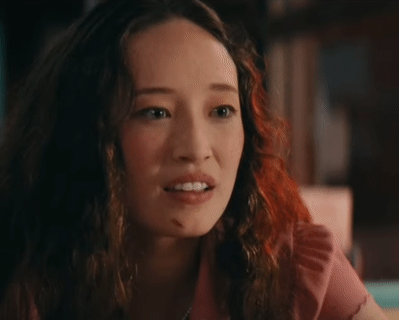
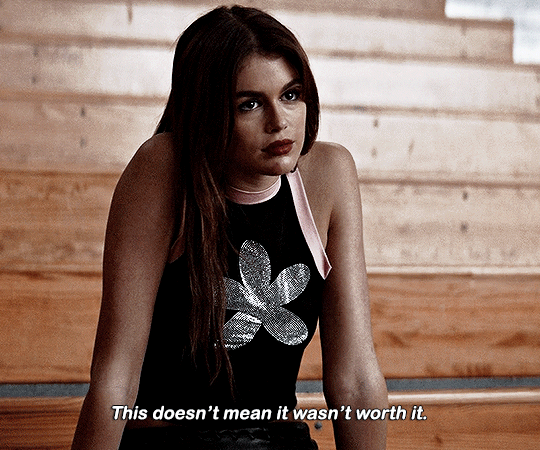
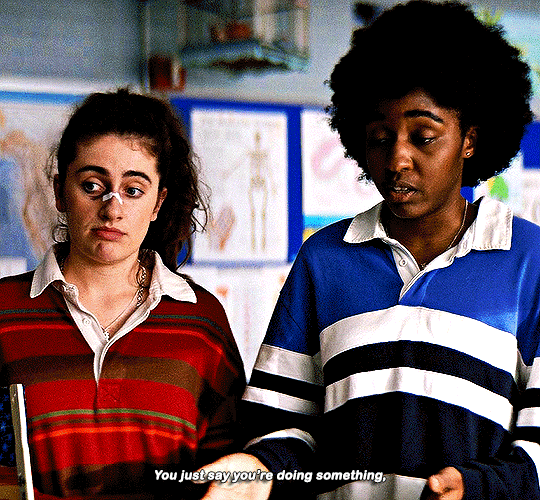
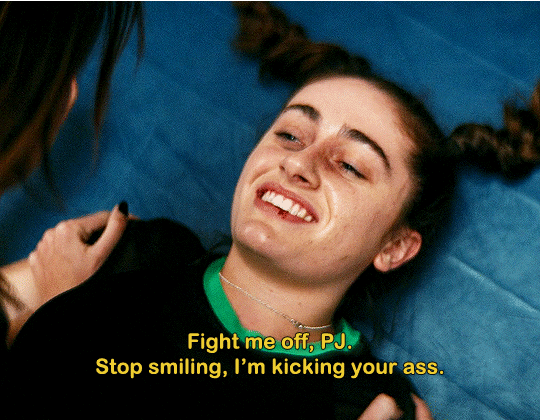
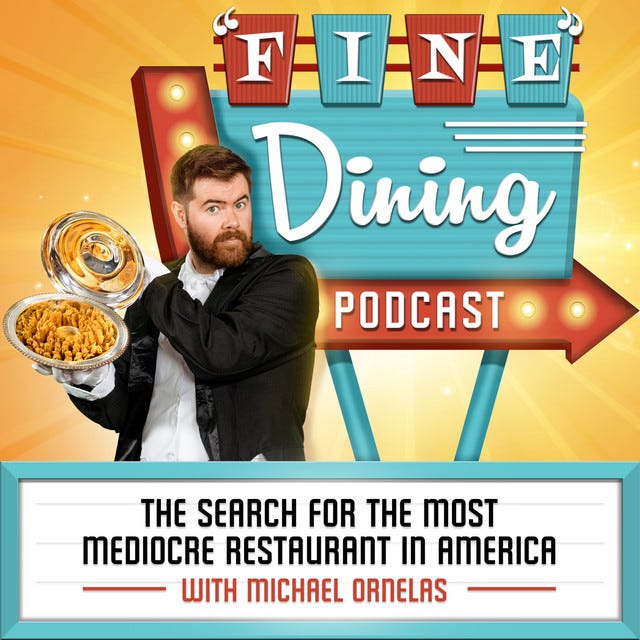
Wow I felt like I was reading all the stuff in my own head! Yes yes all the damn yes! So glad to read this today thank you!
Great piece!